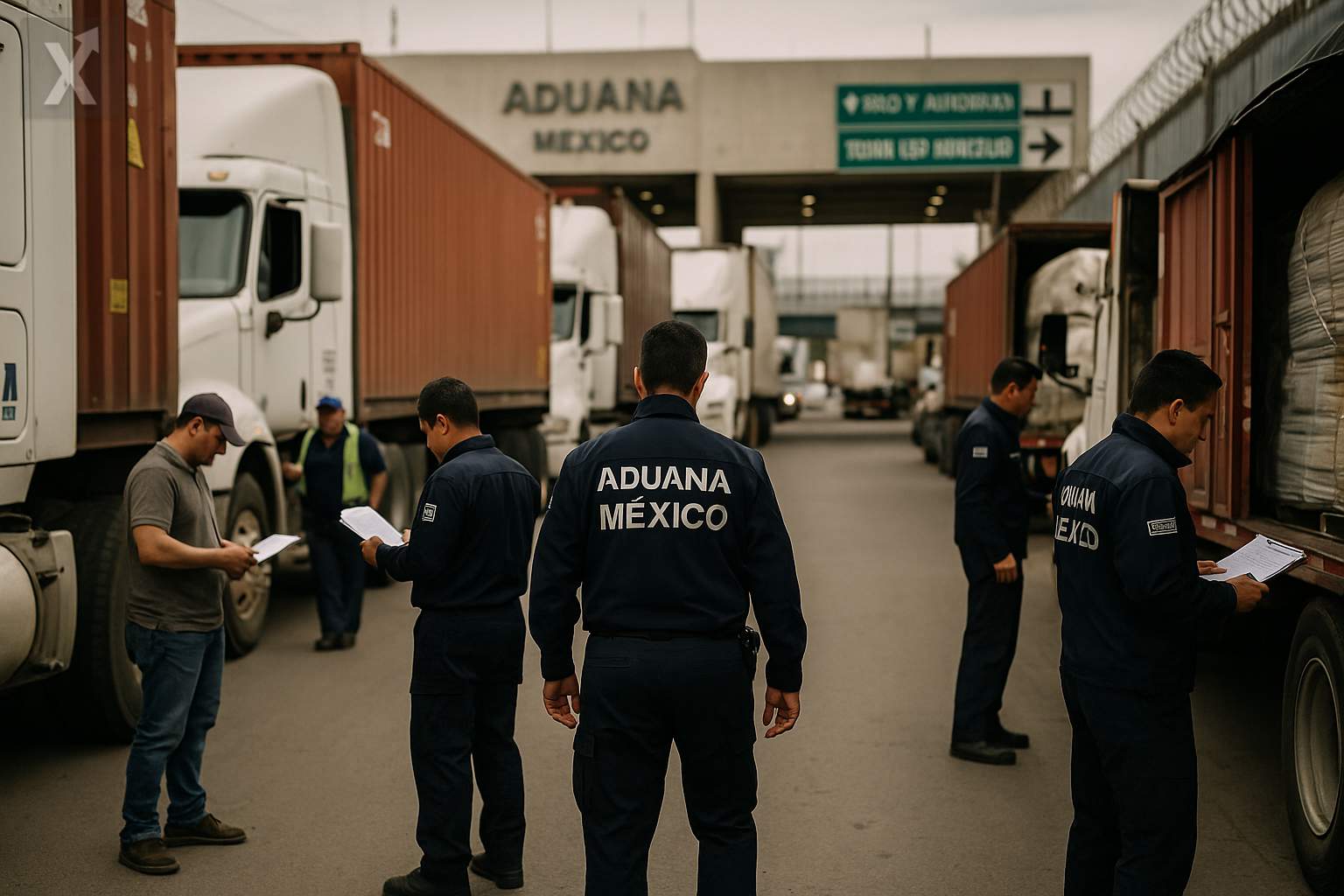Increase in U.S. Tariffs Boosts Illicit Trade and Challenges Mexico's Legal Economy

The recent escalation of tariffs by the United States—driven by a renewed protectionist agenda following Donald Trump's return to the presidency—is having significant collateral effects on Mexico, one of its main trading partners. The application of tariffs to a broad range of products—with an average rate of 15.6% as of June 2025, the highest level in decades—has created cracks in the trade legal framework and is encouraging operations on the margins of the formal economy.
According to the International Institute for Strategic Studies (IISS), tariff pressure not only alters traditional trade flows but also creates opportunities for the expansion of smuggling and other illicit activities. The higher costs and increased red tape in legal trade are eroding the competitiveness of businesses operating in Mexico, while criminal groups are taking advantage of the situation to further sophisticate their evasion methods, including document forgery, trade triangulation, and undervaluation of goods.
The response from black markets to tighter scrutiny and higher trade costs is both swift and effective. Recent reports show that Mexican and foreign criminal networks have diversified their portfolios, entering into parallel trade of products such as electronics, auto parts, and agricultural goods, taking advantage of bottlenecks at border crossings, outdated technology, and limited international coordination to implement large-scale evasion schemes.
The impact on Mexico’s productive sectors is multifaceted. On one hand, unfair competition directly harms companies that comply with regulations and pay taxes. On the other, the federal treasury suffers significant losses in tax revenue, with trade-based money laundering estimated to move hundreds of billions of dollars each year. During the previous round of trade tensions (2018-2019), losses from tariff evasion were estimated by Goldman Sachs to have reached $130 billion.
The current situation is also enabling parallel banking systems and illegal financing circuits to capture a larger share of capital flows, undermining bilateral efforts to strengthen security collaboration and fight organized crime. Experts warn that new trade restrictions could paradoxically worsen the security situation and facilitate criminal diversification into less visible and more profitable sectors.
Irregular migration—another critical issue in the bilateral relationship—is also being affected by these new trade policies. Stricter border controls and the designation of Mexican cartels as terrorist organizations could increase the profitability of illegal networks involved in human trafficking and forced recruitment, putting stranded migrants at greater risk as they become more vulnerable to crime.
Despite efforts by authorities to close gaps in customs and fiscal systems, the structural differences between regional markets and the sophistication of illicit networks continue to pose a serious challenge. Experts warn that each new tariff measure, rather than containing crime, may actually be creating incentives for its proliferation and operational sophistication.
Looking ahead, Mexico’s economy faces the challenge of maintaining its dynamism and attractiveness to investment, while fighting the erosion of its tax base and strengthening transparency in its border processes. International cooperation—particularly close coordination with the United States and Canada—will be key to balancing trade security and operational efficiency, minimizing opportunities for illicit activities that could undermine growth and confidence in the regulatory framework.
In summary, the redesign of North American trade policies is helping to reshape organized crime’s routes and strategies, pressuring Mexico to update its institutional mechanisms and regional cooperation frameworks. Decisions made today may have medium- and long-term structural impacts on the integrity, security, and competitiveness of the Mexican economy.
As the current context demonstrates, rising trade protectionism affects not only costs and uncertainty for legitimate actors but also expands opportunities for the illicit economy. Mexico’s response will be critical in stemming the rise of illicit trade, preserving economic stability, and strengthening legal channels of exchange with its most important trading partner.





